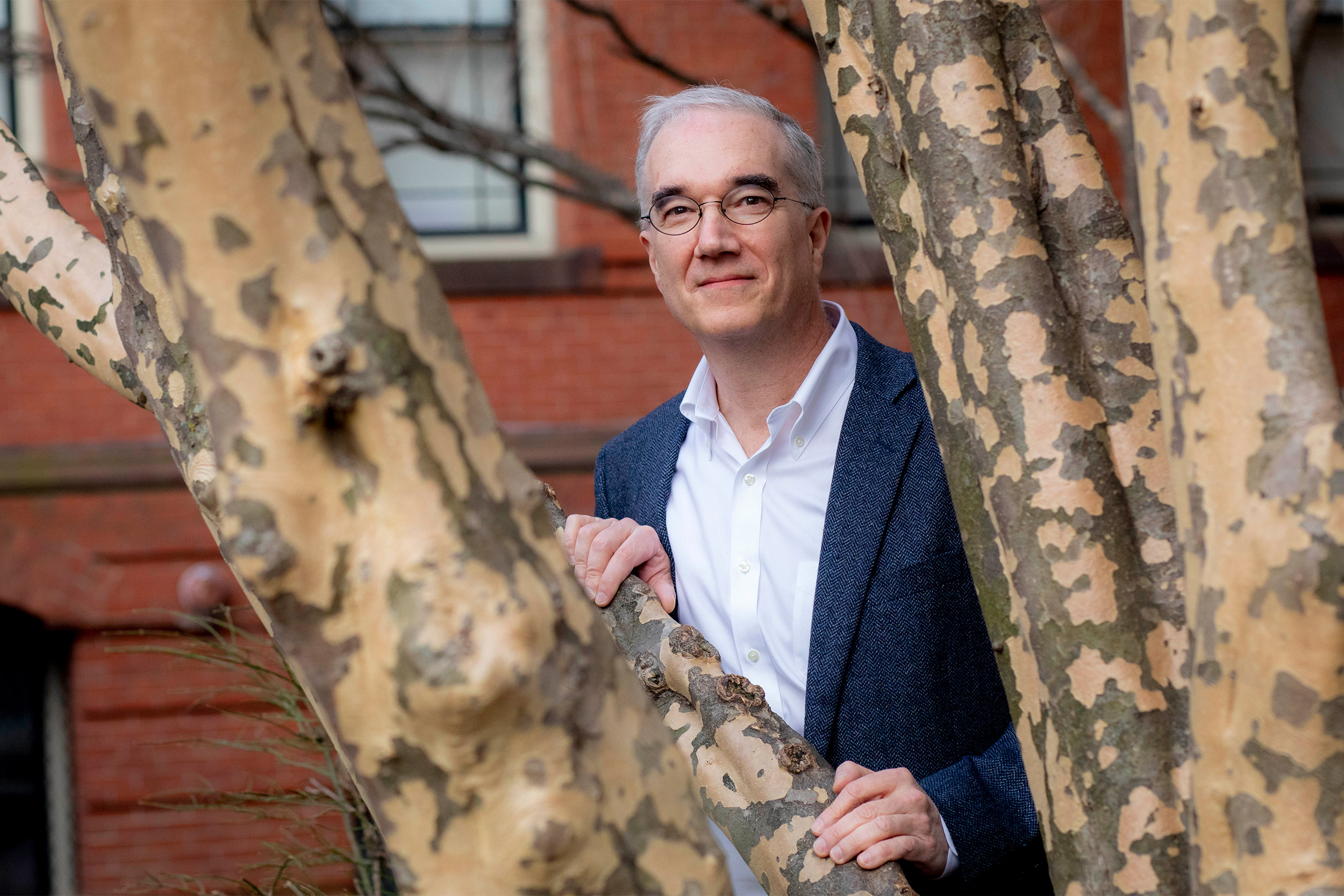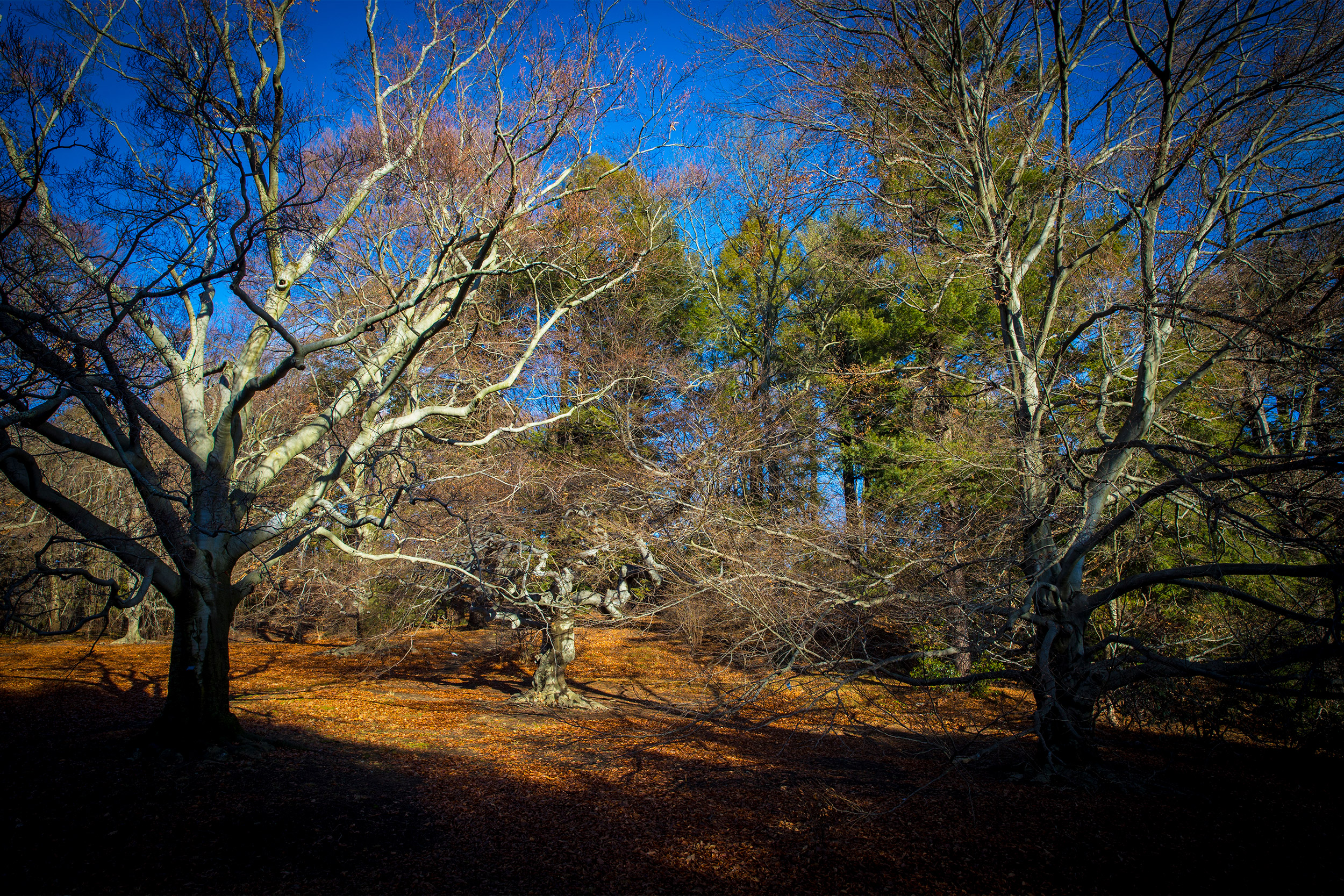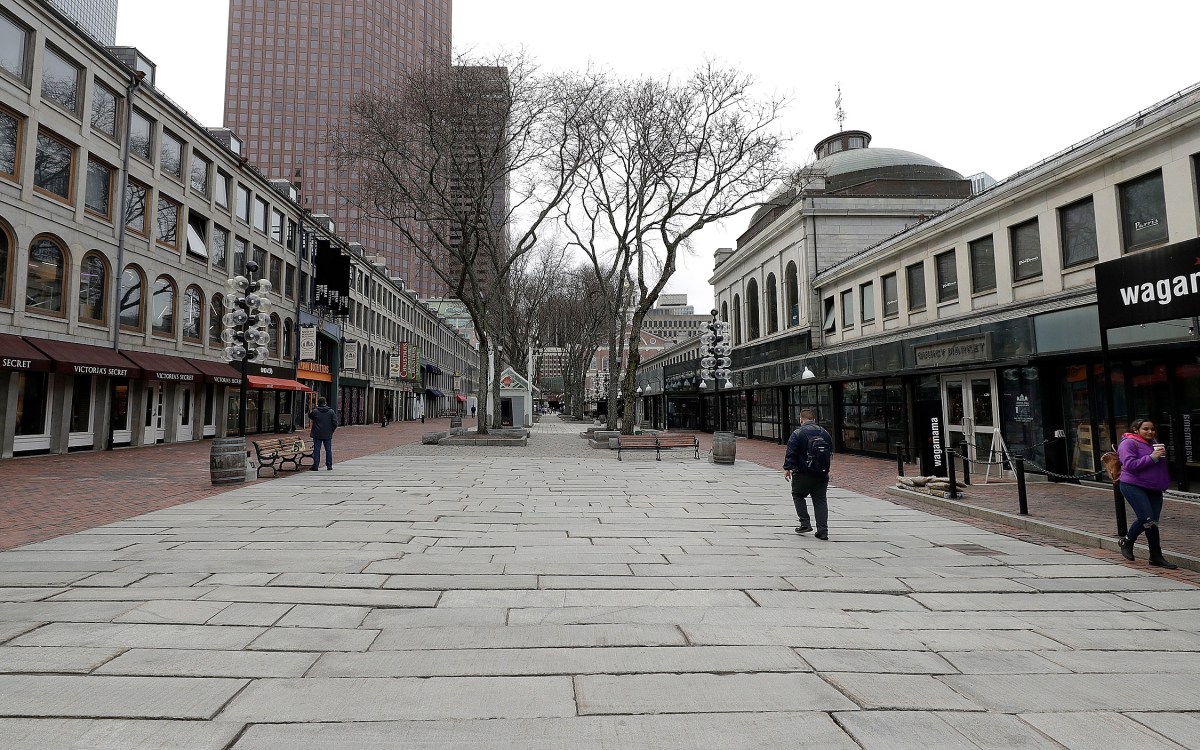
Arnold Arboretum Director William “Ned” Friedman explains how they are making visits safe in the vast facility.
Rose Lincoln/Harvard file photo
Why the Arboretum remains open
Director William ‘Ned’ Friedman explains why the public health benefits outweigh the coronavirus risks
Across the nation, the COVID-19 pandemic has led to the closure of many parks, botanical gardens, and other outdoor facilities. But the Arnold Arboretum remains open. Its director, William “Ned” Friedman, the Arnold Professor of Organismic and Evolutionary Biology, believes that except where impractical, public green spaces should stay open to give people relief from the stress of the health crisis. The Gazette recently spoke with Friedman about the public health benefits of shared outdoor places and how to stay safe when visiting them.
Q&A
William “Ned” Friedman
GAZETTE: Closing public parks and gardens might seem a reasonable public health step in the midst of a pandemic. But you think in most cases it is not needed. Why?
FRIEDMAN: Each garden or park will be a little bit different. Some are very small, with very tight paths, so it would be really hard for people to follow social distancing in them. But for most outdoor botanical gardens and parks that is not the case. At the Arnold Arboretum, which is both Harvard’s tree museum and a city park within the Emerald Necklace, we have 281 acres, and that’s a lot of room. I consulted with a number of experts, including Joe Allen and Marc Lipsitch from the [Harvard T.H. Chan] School of Public Health. What they explained, as well as others, is that being outside is very different from being in an enclosed space, because what comes out of your mouth quickly mixes with the huge volume of air around you; it doesn’t get trapped inside a room with four walls and closed windows. I think what happened around the country was that because initially during the pandemic a lot was still unknown, many parks and gardens acted conservatively. They shied away from being open. But we have good reason to believe that there are many important public health benefits of being outdoors and doing it safely, and that’s one of the reasons we’ve remained open.
GAZETTE: And you believe the benefits outweigh the risks?
FRIEDMAN: All of our behavior should be governed to absolutely minimize our risks, so when we go to the grocery store we should be exceedingly careful. But outside, you are generally in a very safe place as long as you maintain distances between people. There’s a huge amount of science that speaks to the benefits of being in nature. The obvious one is physical health. If you are just walking you’re doing something that is good for your body physically. For children, there are cognitive benefits. There are benefits for adults in reducing anxiety, lowering stress levels, and becoming less likely to ruminate on negative thoughts.
Science aside, I remember the last major stress to the system in Boston and that was the Marathon bombings. We were all on lockdown, confined to our houses. I live two blocks from the Arnold Arboretum. When we finally got the all-clear from the city of Boston, I went to the Arboretum. And I was not the only one. Huge numbers of people poured in because, like me, they needed a connection back to nature to deal with the agony and the pain and the darkness of what had just happened. And I think in this pandemic, botanical gardens, arboreta, and public parks like the Arnold Arboretum are even more important — because on top of regular daily stresses, people are experiencing economic anxieties, they fear family members may become sick. Beautiful outdoor spaces allow people to reset their emotional states, become calm, more reflective, and feel better.
“… we’re doing everything humanly possible to make people feel comfortable and safe. But at a deeper level we really have to depend on the community to decide to behave well.”
GAZETTE: If people were to flock to urban parks again, wouldn’t that be a setback in terms of controlling the spread of the virus?
FRIEDMAN: Absolutely. If you crowd into any open space and you don’t have social distancing and people aren’t wearing facial coverings, that’s a problem. It’s very important for each park, botanical garden, or arboretum to think very carefully about how to maintain proper numbers of visitors at all times within the confines of that space. Many botanical gardens have a main gate and are now using electronic-timed ticketing, which means you can only go in at a certain time. We are not able to do that at the Arnold Arboretum. We have 12 entrances, and our gates are always open. That’s one of the reasons the city of Boston worked with us to close off parking on streets next to the Arboretum — to avoid surges of people coming from all different communities into this one part of the Emerald Necklace. But we’re keeping a very close eye on this. We’ve added more Arboretum Ambassadors, our staff who provide visitor assistance, and I’m on the grounds, myself, regularly. Our hope is that we can keep everything at the right levels. But, at the end of the day, no one should be going into a space where people are not observing safety guidelines and maintaining proper social distancing measures.

The Arnold Arboretum stretches over 281 acres.
Rose Lincoln/Harvard file photo
GAZETTE: What other steps have you taken at the Arboretum to keep visitors and staff safe?
FRIEDMAN: Most of our staff are working remotely, and most of our buildings are essentially empty. And when our crews are on site doing maintenance and tending to the grounds and living collections, we’ve changed the way crew members work so that there is always safe distancing between any two employees. We’ve removed all trash receptacles so we can focus on caring for our plants and landscape and keeping the grounds safe. For visitors, we have installed a lot of signage. We’ve rented large digital signs — the kind you see on roadways that flash messages — talking about proper behaviors, how to keep your distance, the need to wear face coverings. We’ve also put out all kinds of sandwich boards about how to behave. And by increasing our staffing for Arboretum Ambassadors, we can better ensure that if anyone needs help, gets lost, or has a question, they can find assistance.
So we’re doing everything humanly possible to make people feel comfortable and safe. But at a deeper level we really have to depend on the community to decide to behave well. A lot of green space shutdowns were caused by people who were self-indulgent, self-absorbed, and selfish on those properties. They didn’t observe proper social distancing, or they were actually hostile to people who insisted on social distancing. By and large we’ve had phenomenally good behavior at the Arnold Arboretum. We try very hard to create a sense of community. It hasn’t been perfect, but by and large it’s been exceedingly good. In the end you simply have to ask the community to rise, especially now because we’re living in a pandemic, and this truly should bring out the best in all of us.
GAZETTE: Can the approach you have taken at the Arboretum serve as a model for other public outdoor spaces?
FRIEDMAN: Yes, it can. We are actively sharing our best practices with botanical gardens and arboreta across the country, and I’ve been writing to many colleagues to let them know about our efforts. We’re also working with the American Public Gardens Association to get the word out through them, and we’re going to be leading some sessions this summer to help public gardens that have closed reopen safely and appropriately, when the time comes.
GAZETTE: What specific advice can you offer walkers, runners, bicyclists, and others who want to use these outdoors spaces but fear spreading or receiving the virus?
More like this
FRIEDMAN: It’s 100 percent about behaving safely and being courteous to your fellow visitors. So number one, no fewer than six feet between your family and any other family. We recommend 10 feet at the Arnold Arboretum. Everyone should wear facial coverings whenever they’re in a garden or a public park, especially while biking or jogging. I know bicyclists and joggers are not doing this in large numbers. They don’t like them. But that’s not the point. You need to be respectful of your fellow human beings. If you’re on a bicycle in a public park, go slow. Avoid touching things. If you feel that the space you’re about to enter seems crowded, turn around, go home, or walk somewhere else. Just do what feels sensible, and don’t force anything. Before you visit, check Google Maps “Popular Times,” which reports live visitor information compared with normal attendance. Try to plan your visit in such a way that you maximize the opportunities to spread yourself from other people. That just makes it easier.
GAZETTE: Frederick Law Olmsted, who designed the Arboretum and other urban parks, was a champion of public access to natural spaces. Have you taken inspiration from his views?
FRIEDMAN: Olmsted lived at a time when pandemics were not an uncommon thing, and he felt strongly that people, especially in cities, needed places to go in nature and where the air was clean. One great aspect of Olmsted’s designs is how often they provided for very wide boulevards. For example, unlike some nature preserves where you might have a three-foot-wide foot path, in the main parts of the Arnold Arboretum the roads are 15 to 20 feet wide, which gives visitors the opportunity to distance themselves from others. Olmsted was a great believer in democracy and access to beautiful, natural spaces, and the Arnold Arboretum is one of his great designs. And that’s why now more than ever, in the middle of a pandemic, his design and vision for shared public space shine. The Arnold Arboretum is a place to be to help deal with the anxieties and the worries and the heartache of our shared situation.
Interview was edited and condensed.







